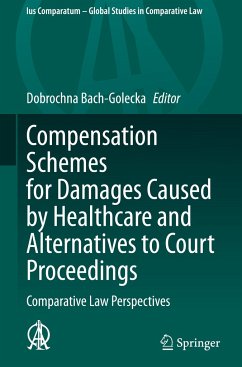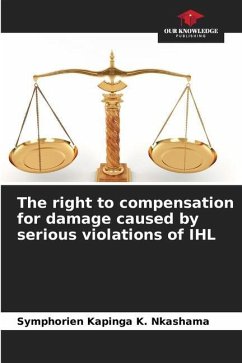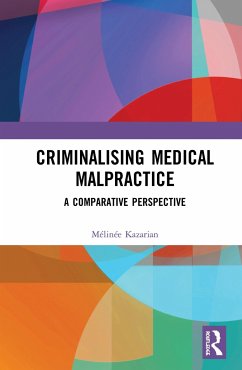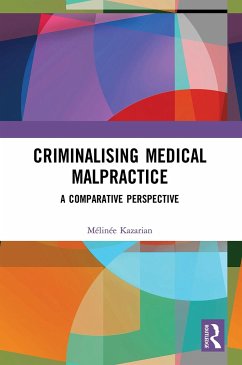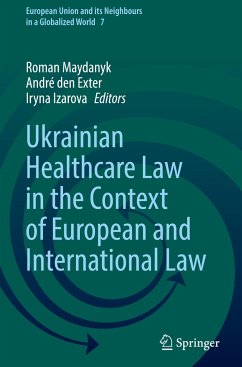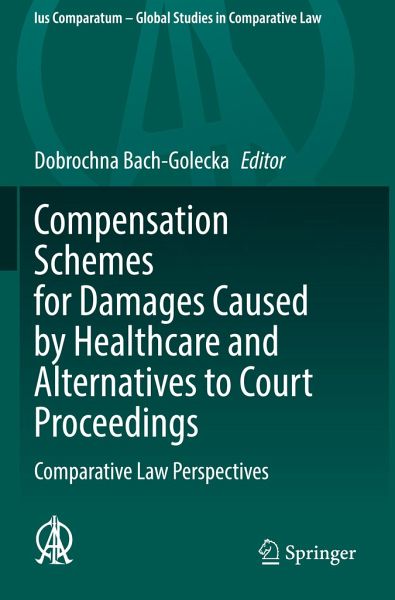
Compensation Schemes for Damages Caused by Healthcare and Alternatives to Court Proceedings
Comparative Law Perspectives
Herausgegeben: Bach-Golecka, Dobrochna
Versandkostenfrei!
Versandfertig in 6-10 Tagen
119,99 €
inkl. MwSt.

PAYBACK Punkte
60 °P sammeln!
The book discusses compensation mechanisms and other non-judicial means that offer alternatives to court proceedings, designed and provided for within national legal regimes. Such schemes are primarily of a civil or administrative character and are mainly intended to supplement criminal liability for medical negligence. As such, the book focuses on medical malpractice and prospective medical harm from a civil law perspective.It examines the contemporary perspective of a patient-physician relationship, which has evolved from a relation of a quasi-patrimonial character into a partnership of quas...
The book discusses compensation mechanisms and other non-judicial means that offer alternatives to court proceedings, designed and provided for within national legal regimes. Such schemes are primarily of a civil or administrative character and are mainly intended to supplement criminal liability for medical negligence. As such, the book focuses on medical malpractice and prospective medical harm from a civil law perspective.
It examines the contemporary perspective of a patient-physician relationship, which has evolved from a relation of a quasi-patrimonial character into a partnership of quasi-equal parties, dealing with a medical treatment procedure as a scientific endeavor. It also reviews the extra-legal conditions that are taken into account in compensation arrangements, particularly the need to satisfy a psychological urge for conciliation and empathy on the part of medical personnel. Lastly, the book explores the responsibility of public authorities and healthcare providers to guarantee access to healthcare that is of a sufficient quality, based upon standards provided for in international (and European) law.
It examines the contemporary perspective of a patient-physician relationship, which has evolved from a relation of a quasi-patrimonial character into a partnership of quasi-equal parties, dealing with a medical treatment procedure as a scientific endeavor. It also reviews the extra-legal conditions that are taken into account in compensation arrangements, particularly the need to satisfy a psychological urge for conciliation and empathy on the part of medical personnel. Lastly, the book explores the responsibility of public authorities and healthcare providers to guarantee access to healthcare that is of a sufficient quality, based upon standards provided for in international (and European) law.





